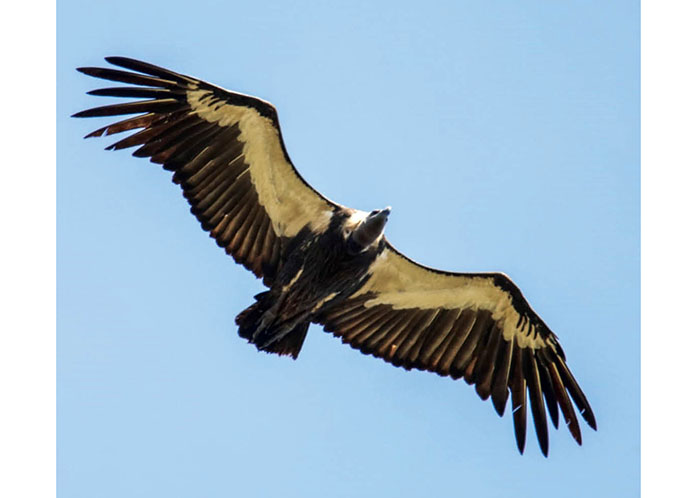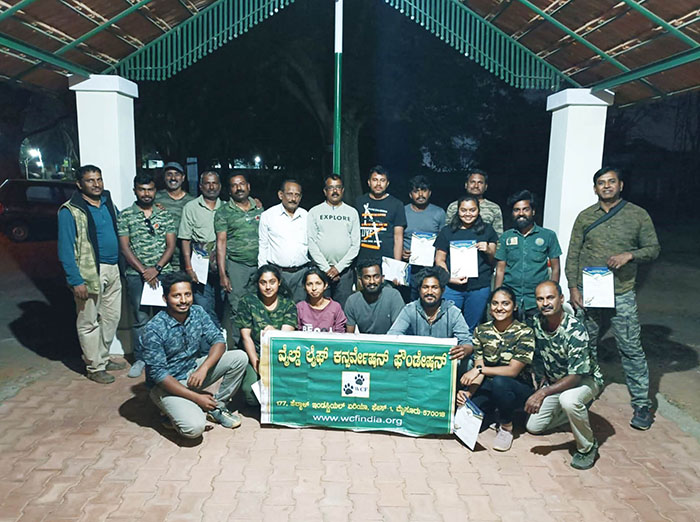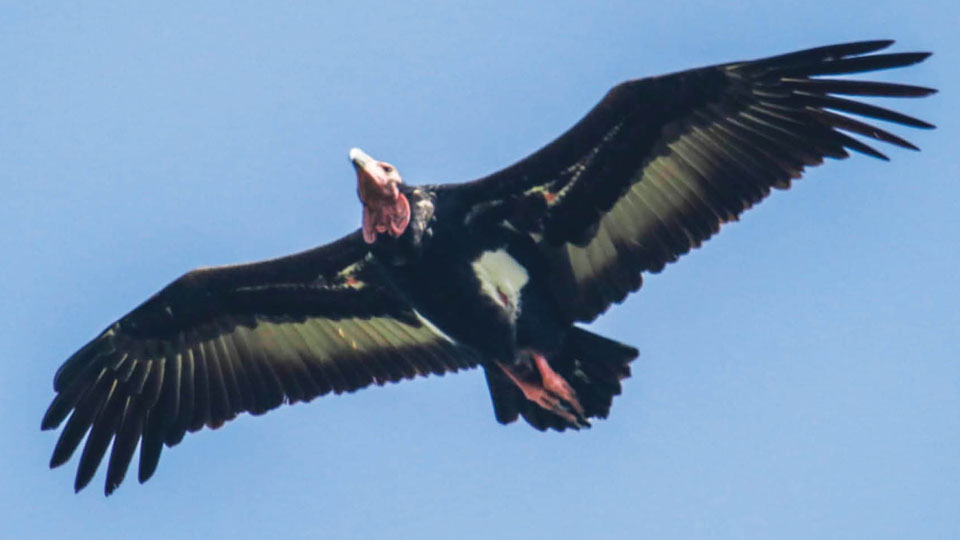White-rumped vulture, red-headed vulture, Indian vulture & Egyptian vulture sighted
Mysore/Mysuru: The two-day Synchronised Vulture Survey held in Bandipur and Nagarahole Tiger Reserves (Karnataka) and Mudhumalai, Sathyamangalam and Nilgiris (Tamil Nadu) and Wayanad (Kerala) covering the Nilgiri Biosphere Reserve concluded on Feb. 26.
The survey at Bandipur Tiger Reserve and Nagarahole Tiger Reserve found a total of 350 vultures of four species, providing some relief to bird enthusiasts. The survey was one of several measures taken by the Forest Department to save vultures, which are at risk of extinction.
Earlier, Karnataka, Tamil Nadu and Kerala used to conduct separate surveys and this is for the first time, a synchronised survey was done to avoid duplication of data. This survey was conducted in association with Wildlife Conservation Foundation (WCF).
In Bandipur, the survey aimed to assess the vulture population’s status in the forest area and a total of 245 vultures were identified, including white-rumped vulture (168), Indian vulture (34), red-headed vulture (43) and Egyptian vulture (one). Over 40 points were identified for the survey in 13 zones and the survey was carried out by 32 volunteers from the College of Forestry, Ponnampet, Kodagu and over 80 Forest Department personnel too were part of the census.
Dr. P. Ramesh Kumar, Director of Bandipur Tiger Reserve, presented certificates to the volunteers who participated in the survey, alongside ACFs Naveen Kumar, Raveendra and Paramesh.
Vulture sightings were reported from 40 places and based on the preliminary findings, the data showed that Bandipur has a sizeable number of vulture populations which is present in over 70 percent of the park area of 912.04 sqkm.
Meanwhile, the survey conducted at Nagarahole identified a total of 104 vultures from three species — White-rumped vulture (61), Indian vulture (13) and red-headed vulture (30). The survey covered various ranges in the forest, and Harsha Kumar Chikkanaragund, Director of Nagarahole Tiger Reserve, presented certificates to the volunteers.

TN fares better
At the Mudhumalai Tiger Reserve, 30 teams surveyed the forests and spotted Egyptian vultures, red-headed, long-billed and white-rumped vultures. Researchers and surveyors said that the number of vultures in Kerala and Karnataka is lower when compared to Tamil Nadu.
The study also revealed that the vultures have shifted their nesting locations into deeper forest areas in Mudhumalai Tiger Reserve but the number of nesting places has not come down in any significant manner. While the survey results have inspired hope, experts warn that stringent measures are necessary to save the vulture population.
Wildlife expert Rajkumar Devaraje Urs emphasised that vultures play a crucial role in maintaining forest cleanliness, and their population has significantly declined. The use of diclofenac drug to treat cattle is a significant reason for this decline.
Urs suggested that the Nilgiri Biosphere Reserve should be declared a “Vulture Range” to ensure that these birds can continue to contribute to the ecosystem for generations to come.

Awareness programmes
The Forest Departments of the three States are planning to conduct an awareness programme to make them aware of the ill use of diclofenac, a non-steroidal anti-inflammatory drug used to treat livestock diseases. Vultures feeding on the carcasses of animals treated with the drug suffer renal failure and die.
Despite placing a ban on the veterinary use of diclofenac in 2006, human doses were misused for cattle treatments. Though the usage of diclofenac has reduced considerably now, it is continued to be misused.








Recent Comments